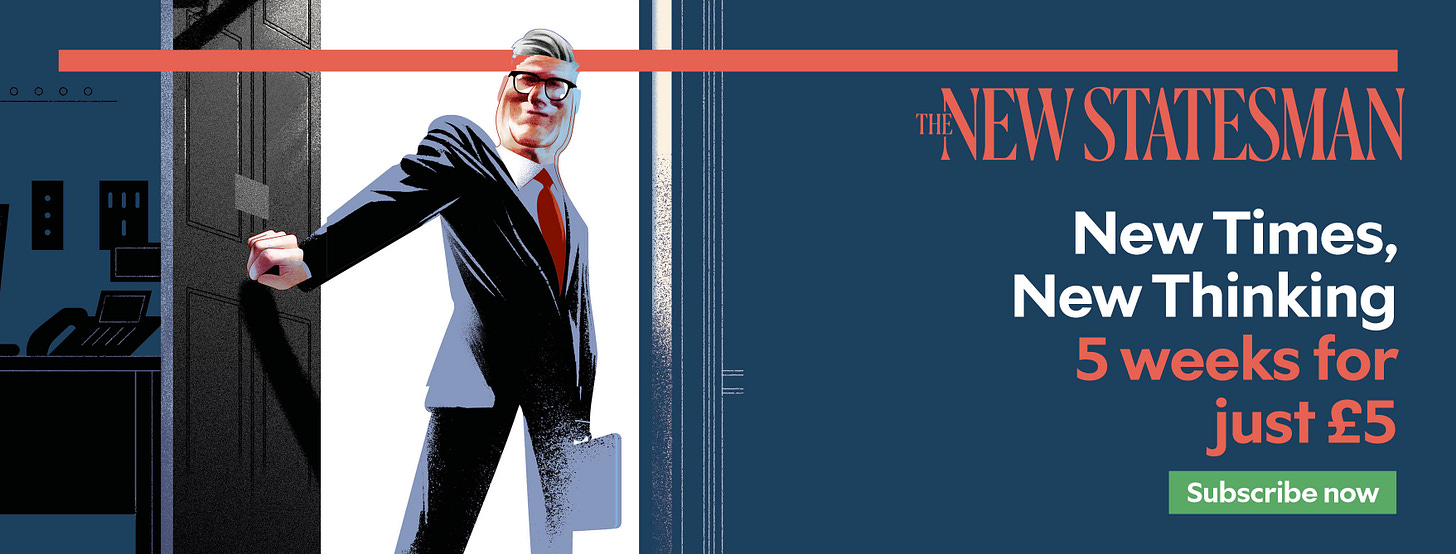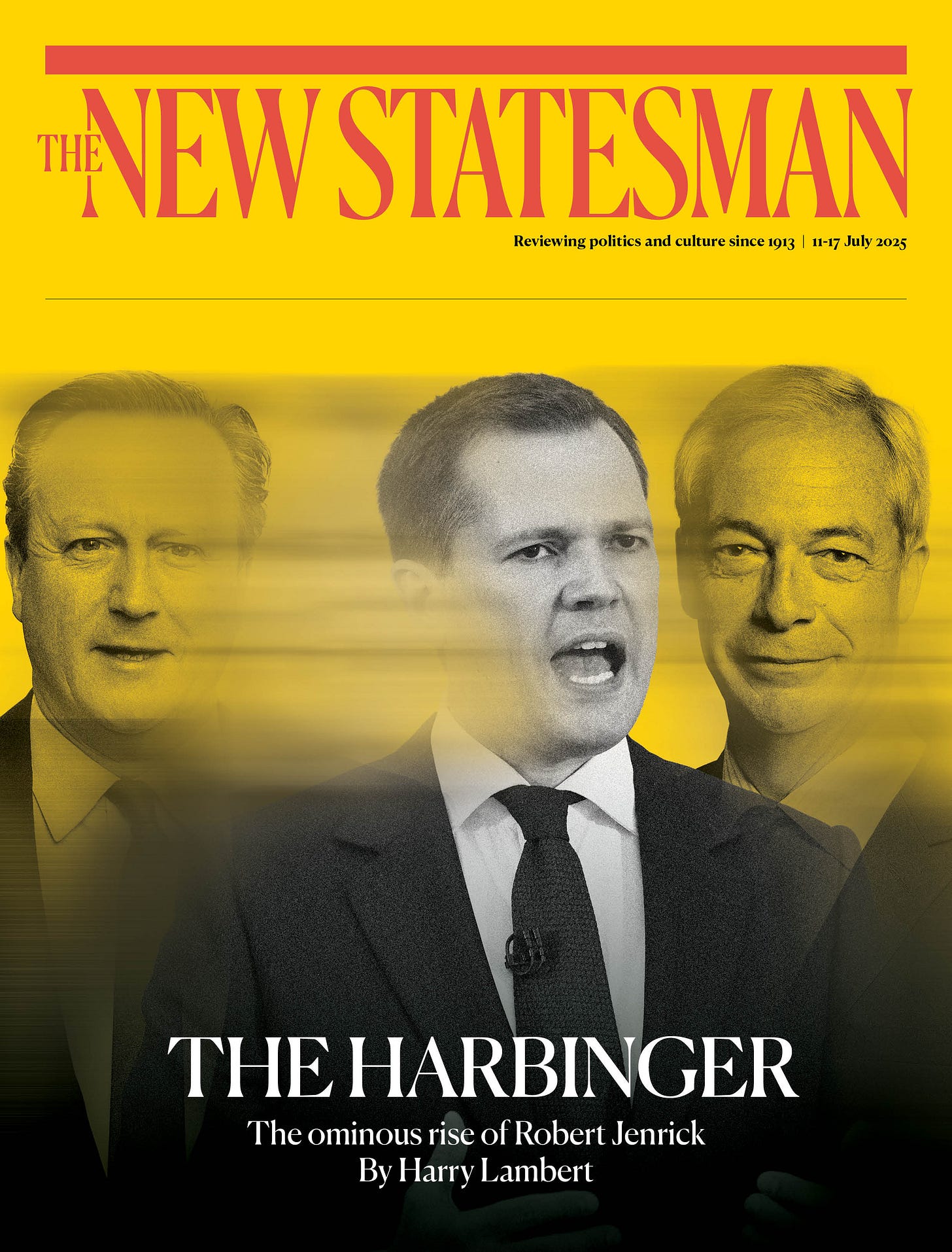Good morning, Will here. It’s a hot Friday morning, Britain’s economy contracted by 0.1 per cent last month, and I’m going to try to make you care about the Bank of Japan. Come back! It might be important!
Normal British people don’t spend much time thinking about the Japanese central bank. Normal Japanese people probably don’t, either, but decisions taken in Tokyo can have significant effects for you.
It was in Japan that the great quantitative easing experiment began, and as I’ve argued at length, the massive distributional effects this had on wealth reshaped politics and culture in the UK, the US and Europe. But that experiment is far from over.
If you think Britain’s interest rates were crazily low in the 2010s, well, you’re right, but in Japan they were negative for eight years. Even now their Bank rate remains at 0.5 per cent. This created the possibility for what’s called a “carry trade” – borrowing cheaply in one currency to finance investment in another currency. You could borrow at rock-bottom rates in yen, use that to buy British bonds, and keep the difference. The more money you use to do this, the more profit you make. Lots of people have been doing this for a long time, because Japan’s central bank has kept rates artificially low in an attempt to combat deflation and stimulate the country’s economy during its decades-long stagnation.
The reason you, a normal person, should care about this is that it increased demand for the government bonds of other countries (because those “carry trade” investors needed something to invest their borrowed money in). This meant the market gave us better prices for our debt. Even as the Bank of England raised its interest rates, the Bank of Japan kept monetising like it was 2009 – and in doing so, made it cheaper for our government to borrow money. Domo arigato, Bank of Japan!
But this arrangement could not last forever. The Bank of Japan has now begun (very gradually) to raise its rates, making it more expensive to borrow in Japan. It has also been telling investors it plans to raise rates further, and with inflation rising there, investors know it will probably have little choice but to do that. The yields on Japanese government bonds have therefore been rising, which means the Japan discount for other countries’ borrowing is being taken away. This is one of the reasons our borrowing has been getting more expensive – because without cheap yen fuelling demand, there isn’t as much demand for the gilts that the Debt Management Office sells to finance public spending.
This compounds another problem the UK has: credibility. It’s not about what the government wants to do, but whether it can actually do it. The bond market does not really care about politics. But if a UK government with a working majority of 165 cannot push through an attempt to relieve some wealthy pensioners of a £200-a-year bung that was, for most of them, totally unnecessary, this does matter. It sends a strong signal to investors that the government does not have fiscal control.
The same goes for welfare reform: the market does not care about the politics. But if the government says it is going to do £5.5bn of fiscal consolidation and then can’t, this goes into the calculations investors make about the prices of bonds in future. See also this week’s latest U-turn on reforming the energy market: bond investors may or may not have an opinion on whether that would have led to lower energy prices (and therefore inflation); but the fact that the government once more said it was going to do something, and then didn’t, will end up in some price calculations.
That said, you might well ask why the UK, which is run by sensible people, is being charged more to borrow than the US, which is £36.6trn in debt – equivalent to 120 per cent of its GDP – and is run by a weird, unpredictable proto-despot who is cheerfully piling trillions more on top of this. The US has the dollar, and while Donald Trump’s fiscal policy is mad, it is under his control. France also gets better rates from the market, despite running a monster deficit, because its fortunes are linked to the rest of Europe.
The UK is smaller and more isolated. We are also more reliant on overseas investors for government borrowing than other countries – more UK gilts are held overseas than the debt of any other large economy – and as the Office for Budget Responsibility noted this week, the other major source of demand for long-term debt (defined benefit pension funds) is fading away. We are increasingly selling short-term rather than long-term debt. More than other countries, we are vulnerable to the whims of whomever decides to lend us money.
This is why some economists are increasingly concerned that the UK could be first in line for a beating from the bond vigilantes. Albert Edwards, global strategist at Société Générale, told me this week that there is a global problem of loose fiscal policy colliding with tight monetary policy. “The bond markets are looking to teach someone a lesson,” he told me, and when the market collectively decides who is the weakest link, “they may well turn their attention to the UK”. In a note to investors yesterday, Edwards warned: “The Liz Truss Budget debacle back in September 2022 might seem like a tea party compared to what is coming down the line.”
This makes it all the more important that the government takes big steps, now, to assert fiscal control, rather than hoping that it will be alright if they just promise to pile on a load more stealth tax in October. There is an increasing risk that debt markets will cease to tolerate the status quo.
Check out Harry Lambert’s cover feature for this week’s issue of the New Statesman: inside Robert Jenrick’s New Right revolution. The shadow justice secretary’s gonzo stunts are dragging British politics into uncharted territory, he writes.
Jenrick sifted through the implications of his positions on immigration – he thinks migration the issue of his lifetime – although he was eager to move on to other aspects of what he sees as Britain’s current mosaic of error; to show his range, his depth. His decision to give the New Statesman his first significant interview since losing the party leadership could, in itself, be read as a statement of his ambition. He was happy to follow the lead of my questions, which treated him as a candidate for prime minister and a future party leader. His brief as shadow justice secretary rarely came up. Kemi Badenoch, the current Tory leader, did not come up at all.
Also, watch Harry discuss his interview on the New Statesman podcast:
Will’s picks
Freddie powers through Trump-Dependence Day.
George asks whether Britain’s new special relationship with France will help Keir Starmer.
Madeleine Davies sensitively explores the dilemma of having children.
Will Lloyd wonders why Reform took in the former Tory minister Jake Berry.
From our partners
We must protect consumers. But price caps – while well-intentioned – are a misguided solution.
A cap on ticket prices could see the UK lose millions, argues Owen Good of the Centre for Economics and Business Research.
Mailshot
Guardian: Yvette Cooper predicts EU will approve migration deal
Times: Doctors told to give fewer sick notes and send patients to gym
Matt Dathan: In the Channel with Farage
Alex Weprin: Linda Yaccarino’s X
Lewis Hyde: The geological sublime
Richard Brody: The simple morality of Superman










Important scene setting article by Will, explained clearly.
Good to see also WL back.
Another Brexit dividend!